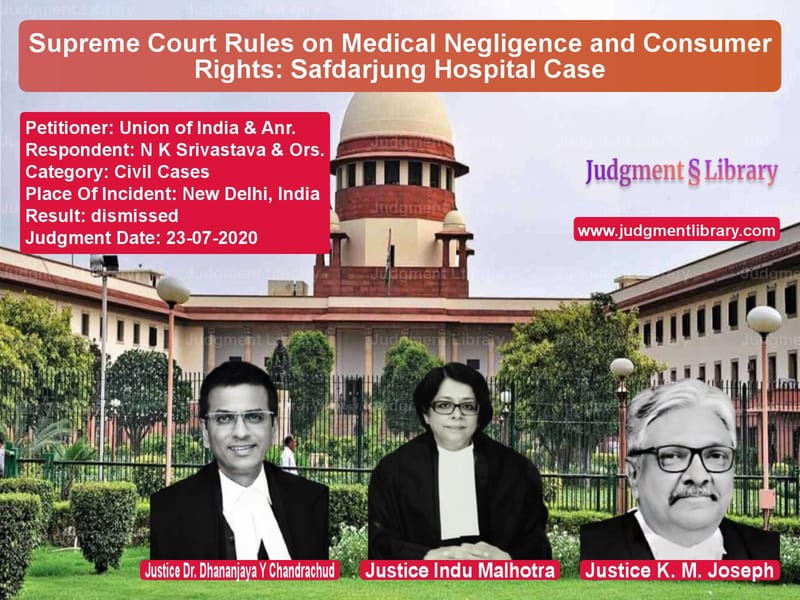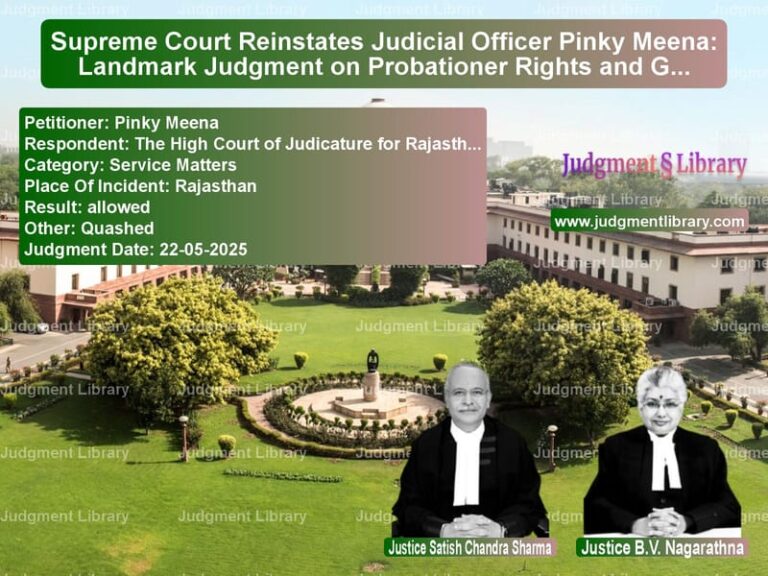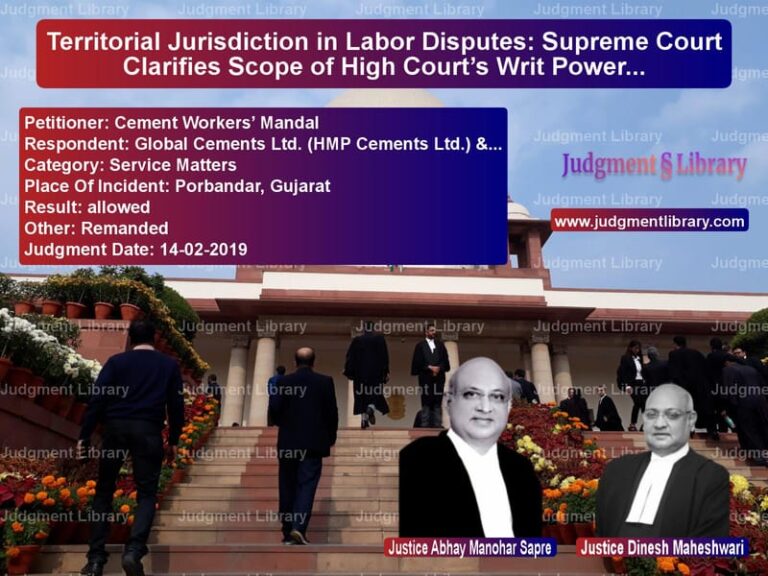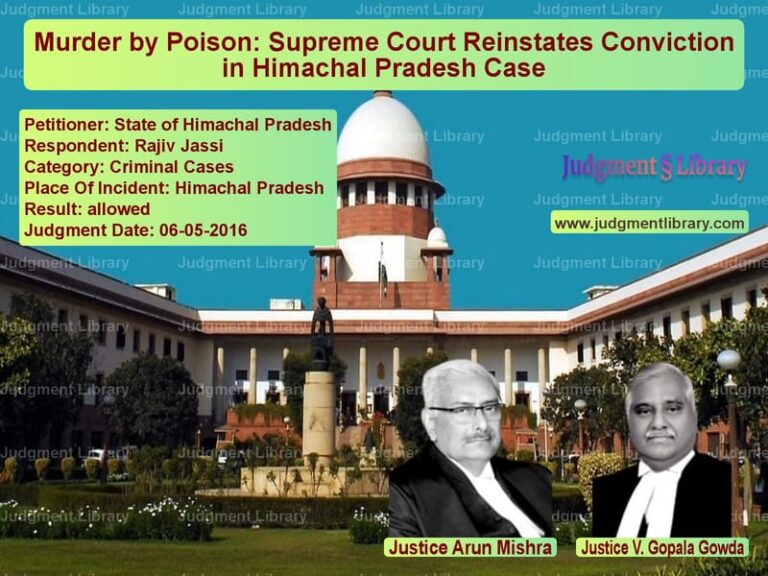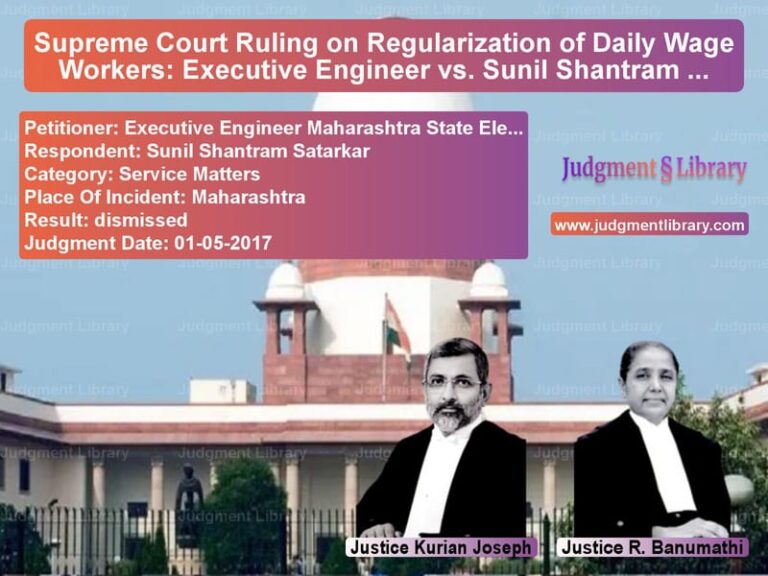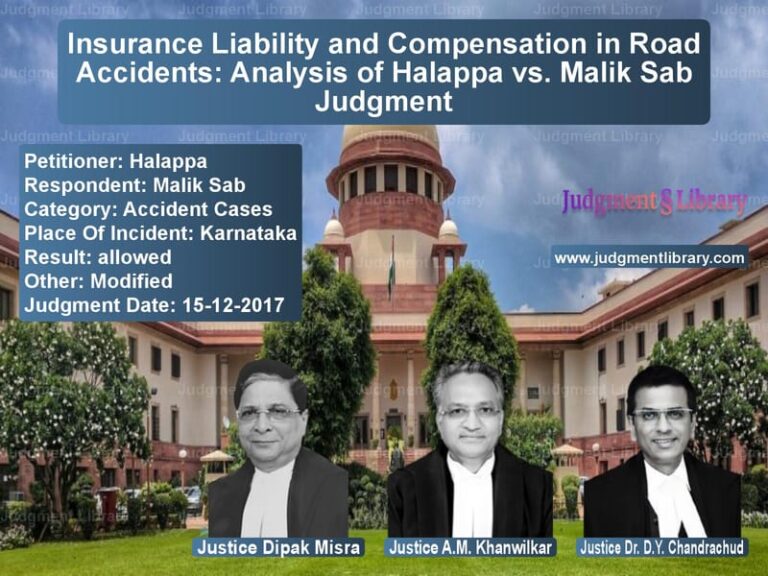Supreme Court Rules on Medical Negligence and Consumer Rights: Safdarjung Hospital Case
The Supreme Court of India, in the case of Union of India & Anr. vs. N K Srivastava & Ors., addressed critical issues regarding medical negligence, consumer rights, and the jurisdiction of consumer forums over government hospitals providing free medical services. The ruling has significant implications for patient rights and hospital accountability under the Consumer Protection Act, 1986.
The case stemmed from a medical negligence complaint filed against Sarvodaya Hospital and Safdarjung Hospital in New Delhi. The complainant alleged that the hospitals failed to provide adequate neonatal care, leading to the death of his newborn child. While the National Consumer Disputes Redressal Commission (NCDRC) exonerated Sarvodaya Hospital, it held Safdarjung Hospital liable for negligence and ordered it to pay Rs. 2 lakhs in compensation.
Background of the Case
The case originated when the complainant’s spouse was admitted to Sarvodaya Hospital on March 9, 2004, due to pregnancy complications. She delivered a premature baby, who required intensive medical care. Sarvodaya Hospital, which initially claimed to have a Nursery ICU, referred the newborn to Safdarjung Hospital, where the baby was admitted to the General Ward instead of a specialized neonatal ICU. The child died in April 2004, prompting the complainant to file a consumer complaint alleging medical negligence.
Arguments of the Petitioner
The Union of India, representing Safdarjung Hospital, argued:
- Safdarjung Hospital provided free treatment and, as per the Consumer Protection Act, services rendered free of charge do not qualify as a “service” under the Act.
- The complainant did not pay any fees for the treatment, making the complaint non-maintainable before consumer forums.
- The hospital had provided the best possible care given the patient load and resource constraints.
Arguments of the Respondent
The complainant contended:
- Safdarjung Hospital had an obligation to provide neonatal ICU care but failed to do so.
- The referral from Sarvodaya Hospital was based on the assumption that specialized neonatal care would be available.
- The Consumer Protection Act applies to government hospitals that offer free treatment if they also charge certain categories of patients.
Supreme Court’s Key Findings
1. Applicability of the Consumer Protection Act
The Court examined whether Safdarjung Hospital, which provides free medical services, falls within the jurisdiction of consumer forums. It ruled:
“A hospital that renders free services to certain categories of patients but charges others cannot be excluded from the Consumer Protection Act.”
2. Medical Negligence in Public Hospitals
The Court upheld the NCDRC’s finding that Safdarjung Hospital was negligent in failing to provide neonatal ICU care despite having the facility. It noted:
“A hospital with specialized medical facilities must ensure they are accessible to patients requiring critical care.”
3. Role of Government Hospitals in Public Healthcare
The Court emphasized that government hospitals play a crucial role in providing medical services and must uphold standards of care. It stated:
“The right to health is an essential component of Article 21, and state hospitals must ensure that public healthcare facilities are adequately utilized.”
4. Compensation and Accountability
While the Court upheld the compensation of Rs. 2 lakhs awarded by the NCDRC, it clarified that this judgment should not be treated as a precedent for similar cases without factual scrutiny.
Final Judgment
The Supreme Court:
- Dismissed the appeal by the Union of India and upheld the NCDRC’s ruling.
- Affirmed that Safdarjung Hospital was liable for medical negligence.
- Directed payment of Rs. 2 lakhs to the complainant within two months.
- Left open the broader legal question of whether all government hospitals fall under the Consumer Protection Act.
Key Takeaways from the Judgment
- Government hospitals providing both free and paid services fall under the Consumer Protection Act.
- Public hospitals have a duty to provide adequate medical care, especially in emergency cases.
- Medical negligence claims against state hospitals can be brought before consumer forums.
- The judgment clarifies the applicability of consumer laws to government-run healthcare institutions.
Conclusion
The Supreme Court’s decision in Union of India & Anr. vs. N K Srivastava & Ors. is a landmark ruling reinforcing patient rights and hospital accountability. While the compensation amount was relatively small, the judgment sets an important precedent for future cases involving public healthcare negligence.
Petitioner Name: Union of India & Anr..Respondent Name: N K Srivastava & Ors..Judgment By: Justice Dr. Dhananjaya Y Chandrachud, Justice Indu Malhotra, Justice K. M. Joseph.Place Of Incident: New Delhi, India.Judgment Date: 23-07-2020.
Don’t miss out on the full details! Download the complete judgment in PDF format below and gain valuable insights instantly!
Download Judgment: Union of India & Anr vs N K Srivastava & Ors Supreme Court of India Judgment Dated 23-07-2020.pdf
Direct Downlaod Judgment: Direct downlaod this Judgment
See all petitions in Medical Malpractice
See all petitions in Consumer Rights
See all petitions in Public Interest Litigation
See all petitions in Judgment by Dhananjaya Y Chandrachud
See all petitions in Judgment by Indu Malhotra
See all petitions in Judgment by K.M. Joseph
See all petitions in dismissed
See all petitions in supreme court of India judgments July 2020
See all petitions in 2020 judgments
See all posts in Civil Cases Category
See all allowed petitions in Civil Cases Category
See all Dismissed petitions in Civil Cases Category
See all partially allowed petitions in Civil Cases Category

